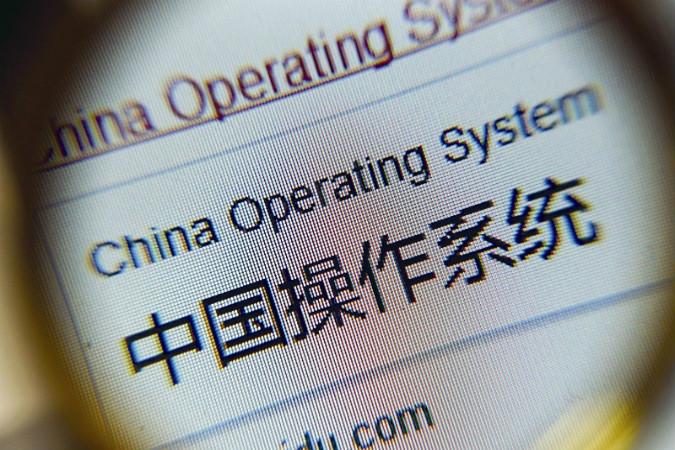
According to Xinhua, the Chinese government-run news agency, China plans to launch a new operating system (OS) as early as October of this year. The new OS, dubbed “China Operating System,” or COS, is state-approved and government-funded, and jointly developed by the country’s Shanghai Liantong Network Communications Technology and the Institute of Software at the Chinese Academy of Sciences (ISCAS). This new Chinese-made OS, according to Ni Guangnan of the Chinese Academy of Engineering, will be a full-blown OS—complete with app stores.
“Creating an environment that allows us to compete with Google, Apple and Microsoft, that is our key to success,” Ni said when speaking to the People’s Post and Telecommunications News. This is a trade publication put out by the Ministry of Industry and Information Technology (MIIT), which is responsible for regulating the country’s software.
Success? Just how is success defined in this situation? Will COS, as China claims, allow the country to kick its dependency on US-made operating systems like Windows, iOS, and Android? Or does China achieve success when COS makes serious inroads into the offshore markets currently dominated by the big three operating systems?
Ni claims that COS could replace all foreign operating systems on laptops and desktops in one to two years, with it expanding to smartphones and tablets in three to five years. However, nothing in China’s recent history suggests that that country’s government-run COS project has the power to meet those goals.
With that in mind, here are five reasons why China’s operating system will fail
5. They’ve tried and failed before
Let’s start with China’s track record. This isn’t its first (or even second or third) attempt at creating its own OS. Back in 2000, the government partially funded Red Flag Software’s Chinese OS, Red Flag Linux. This was required software for all government computers running Windows 2000 at the time. Alas, Red Flag Software closed its doors earlier this year.
4. Nobody wants to be forced to use anything
People don’t take kindly to being ordered to use one thing over another, especially when alternatives that are probably better already exist. Even if the app store in this operating system is solid, there’s no way it will be able to offer the amount and variety of apps that Google, Apple, and maybe even Microsoft can boast.
3. COS looks somewhat familiar
It’s worth nothing that there’s a good chance the country hasn’t really developed a new OS. Reportedly, COS looks a lot like the version of Android running on HTC smartphones. While the Institute of Software at the Chinese Academy of Sciences claimed that the entire OS was developed independently, COS itself reportedly reflects the large number of ex-HTC employees working on the project.
So, in actuality, China has skinned Android to work on desktops (and later with mobile devices), labeled it COS, and put it to work. However, a few attempts at Android desktops in the US, such as HP’s Slate 21, a 21-inch all-in-one, as well as a couple others, strongly indicate that Google’s smartphone and tablet OS isn’t ready to serve as a primary desktop computer operating system. It’s just not powerful and versatile enough. And, frankly, on large screens, Android is unattractive and clumsy.
2. Choosing to not go open source closes doors
Unlike Android, which is open source, and therefore customizable, COS will not be distributed under an open source license. This greatly restricts the ability of both developers and vendors to modify the code as needed. It also potentially increases the Chinese government’s ability to spy on its citizens via computers and the Internet.
Then, too, there are the tactics, such as banning Windows 8 on all new government computers, and then mandating the use of the new COS (or more specifically, a modified version of Android). Or how about blasting Microsoft for discontinuing its support of Windows XP, thereby making a huge portion of the China’s Windows machines vulnerable—of which more than 50 percent were pirated.
1. Government and tech often don’t make a good mix
Finally, China’s government-run projects are highly susceptible to churning at the speed of bureaucracy; while, on the other hand, all major OS products in use in the world today come from private sector entities, making them much more nimble and competitive. While China claims there will be 100,000 COS apps available at launch, overall, COS will most likely be short on compatibility and supported software. As has happened in the past, most government agencies will probably ignore the new OS mandate and keep using their Microsoft (Google and Apple) products.
Editors' Recommendations
- Google may add Apple-like Continuity tools to Chrome OS and Android
- Collapse OS is an open-source operating system for a post-apocalyptic future

